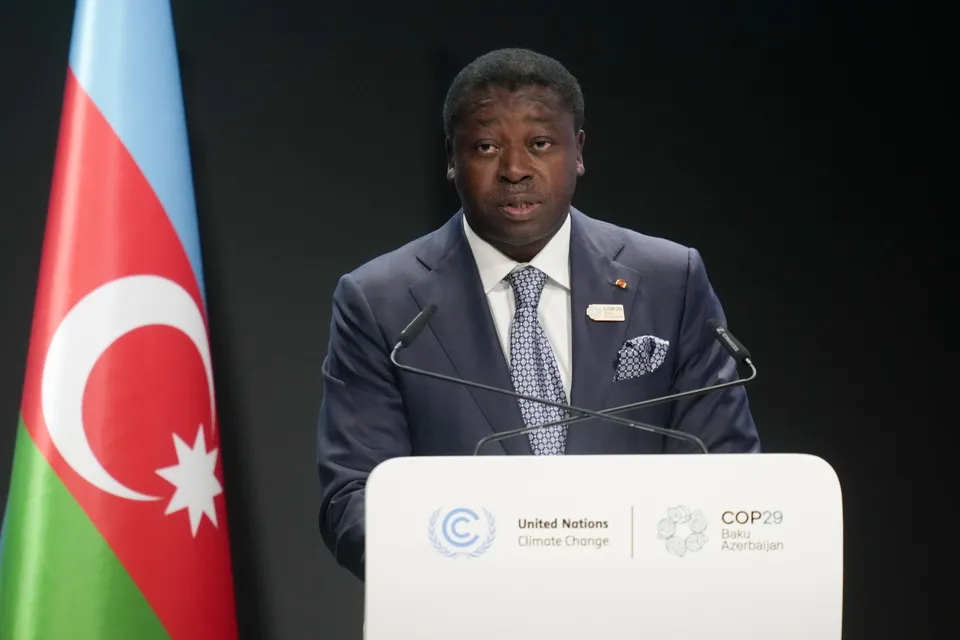
Togo Swears In Gnassingbé Under New Parliamentary System That Could Have Him Rule Indefinitely

Togo entered a new political era on Saturday, May 3, with the swearing-in of Faure Gnassingbé as President of the Council of Ministers, a role that now holds executive authority under the country’s newly adopted parliamentary system.
The ceremony in Lomé, attended by top government officials, diplomats, and military leaders, marked the official transition to the Fifth Republic, following the promulgation of a new constitution in May 2024.
The constitutional overhaul, approved by parliament in April 2024, shifts Togo from a presidential to a parliamentary system. In accordance with Article 47 of the new Constitution, the President of the Council of Ministers now holds full executive powers, including the leadership of the government and the armed forces, replacing the previously executive role of the President of the Republic.
The new system abolishes direct presidential elections, instead allowing parliament to elect the president, and introduces a six-year term for the President of the Council of Ministers, renewable indefinitely as long as the ruling party maintains a parliamentary majority.
During a plenary session of Congress earlier in the day, Gnassingbé, leader of the ruling Union for the Republic (UNIR) party—holding 108 out of 113 seats in the National Assembly—was appointed to the post by parliamentarians.
Gnassingbé pledged in his oath to respect and defend the Constitution, serve the people, and promote peace, national unity, and human rights.
At the same time, Jean-Lucien Kwassi Savi de Tové, an 86-year-old veteran of the Togolese political scene and former minister, was unanimously elected by Congress as the honorary President of the Republic. His role, under the new parliamentary system, is symbolic, tasked with guaranteeing national unity but without executive power.
The transition to the Fifth Republic and the accompanying reforms were criticised by opposition figures, who viewed the changes as a maneuver to extend the Gnassingbé family’s long-standing rule.
Gnassingbé, who has been in power since 2005 following the death of his father, Gnassingbé Eyadéma, who had ruled Togo for 38 years, was elected unopposed by 150 parliamentarians of the ruling party.
Despite the controversy, the ruling party described the shift as part of broader efforts to modernise Togo’s political system and ensure institutional balance under the new parliamentary regime.
About The Author
Related Articles
Tinubu Government Delays Release of Signed Tax Acts to the Public
Four days after President Bola Tinubu announced the signing of four tax...
ByMayowa DurosinmiJune 30, 2025As Tinubu Urges Africa-Caribbean Unity in Saint Lucia, Over 272 Nigerians Killed in June Alone
While Nigerians deal with deadly violence, worsening hunger, and mass flooding, President...
ByWest Africa WeeklyJune 30, 2025You Can’t Tax a Dead Economy: Nigeria Is Suffocating Under Its Own Policies
As Nigeria’s Central Bank clings to its benchmark interest rate of 27.5...
ByWest Africa WeeklyJune 30, 2025“Wike is Not a Blessing to Us, He’s a Disaster” — Workers Protest in Nigeria’s Capital Over Unpaid Wages, Poor Working Conditions
Staff members of the Federal Capital Territory Administration (FCTA) in Abuja barricaded...
ByOluwasegun SanusiJune 30, 2025












Leave a comment